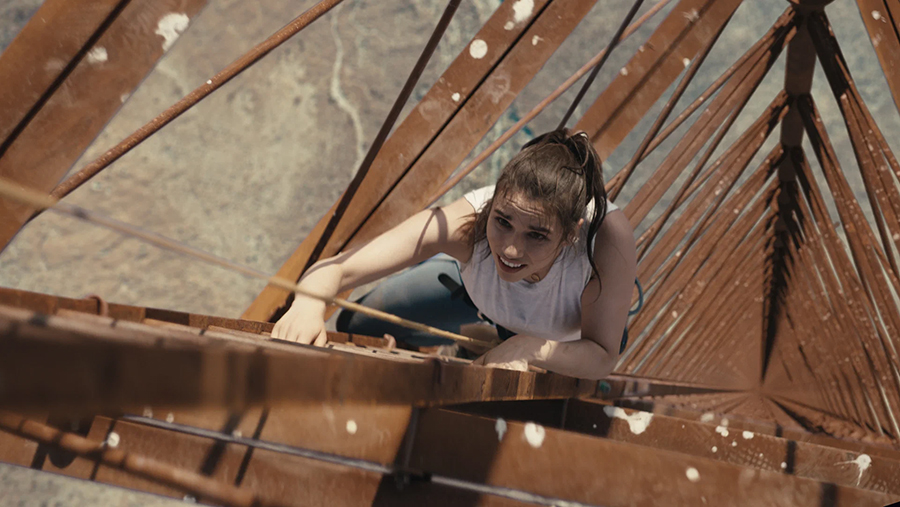"Am I ready for a relationship with a Russian girl? Of course!"

The popularity of horror films is linked to readers' desire to overcome their fears. Russian women are strong, smart, and family-oriented. And Russia was the first foreign country to buy the rights to some of the books by Canadian Australian Jeremy Bates, and he did not even think about ending cooperation with our country after February 2022. The writer told Izvestia about this on the eve of the publication of his book "The Evolution of M" in Russian by the Inostranki publishing house.
"Fear is one of the oldest and most acute emotions"
— Your books Experiment S and Epidemic D have been published in Russia for the first time, and Evolution M is being prepared. How did you come up with the ideas behind these works?
— Every novel comes to me in a different way. My previous series "Sinister Zones of the Earth" was based on real events, but with the new series I needed a different approach. I entered "Scary Legends" into the search engine, and the system gave me "The Russian Experiment with Sleep" — a story only one or two pages long, but terrifying. I couldn't help but wonder what could happen if someone was deprived of sleep for several weeks in a row. In the end, I sat down and started writing my own version of the story, which later came out under the title Experiment S.

Perhaps the most unusual was the creation of the novel "Epidemic D." When I first heard about the medieval dance fever, I assumed it was just a myth. But the more I studied this topic, the more I came to the conclusion that this was actually happening: whole groups of people started dancing uncontrollably, sometimes to death. This eerie phenomenon formed the basis of the book.
— What is the secret of the global success of the horror genre? How do you see the role of horror in our time?
— It seems to me that over the past decade, TV studios and streaming services have moved away from banal fun and gore (although I still find it interesting) to more developed characters, stronger plots, an emphasis on atmosphere and slowly growing fear, which has led to the revival of the horror genre. However, I think the true, enduring appeal of horror— whether in movies or books— lies in its ability to touch on something profoundly universal—fear.

Fear is one of the oldest and most poignant emotions we experience, and fiction provides a safe space to explore it. Themes such as death, uncertainty, isolation, and loss of control resonate across all cultures. In this way, horror can be surprisingly cleansing, allowing readers to face their worst fears and become stronger than them.
"My legs just stopped listening to me"
— In your books you explore the nature of fear. Is there anything you're afraid of?
— My biggest fear is the fear of heights. I don't have many other phobias, only if it's extreme claustrophobia, and even then I've never experienced anything like it. But height is the only fear in which my body refuses to listen to my brain.
When I was younger and lived in Canada, I forced myself to climb a fire tower, and already at the top my legs just stopped obeying me. It was a strange feeling.
A great horror could come out if you describe the horror of two people trapped on top of a massive TV tower, but the movie "The Tower" already did this a few years ago!

— Would you like to film your book, and which one?
— I do not know which of my books would be best suited for a film adaptation. To be honest, I would be glad if any of them would be adapted.
Over the years, producers and film agents have shown interest in me. The production company that created Harry Potter approached me at some point, as did the producer of Saw. I even signed a film adaptation contract for eight of my novels with the company that created Suspiria. Unfortunately, after a year, nothing came of it, so I took the rights back.
It's also important at what point the movie will be released. For example, "Forest of Ghosts" came out about a year after I wrote "Suicide Forest," and there was no point in making a film adaptation of my book. And Paris: City of the Dead was released shortly after the release of my novel The Catacombs of Paris. As soon as a film with a certain setting or concept appears, film studios tend to avoid shooting something like this for the following years, sometimes even decades. But let's see what happens next. Fingers crossed!
"Your country is definitely on my wishlist now!"
— Your book Experiment S is based on the legend of a sleep experiment allegedly conducted in the USSR. Mountain of the Dead is based on the story of the death of Dyatlov's group, and one of the main characters in the book "Island of Dolls" is Russian. What attracts you to the Russian character?
— I didn't even think about how often Russia appears in my books! Perhaps the uniqueness of my novels is that the action takes place in different parts of the world. I've written stories where the main location is in Japan, France, the UK, the Philippines, Australia, Canada, Spain, Mexico, Sri Lanka, and other countries. Unsurprisingly, Russia is also on this list.
I chose the idea for Experiment S not because of the Soviet scenery, but because the very concept of forced sleep deprivation wouldn't let go of me. Russian Russian Elizabeth was made in The Island of Dolls simply because I had never had Russian characters before, and it seemed to me that it would be great to introduce such a character. I do not believe in a single "Russian national character." I've traveled a lot and met people from all over the world, and they're all different. I like my characters to be different too, from different backgrounds. In my novels, the plot determines the setting, not the other way around.
— Have you been to Russia yourself?
— Unfortunately, no, but I would really like to. Yes, your country is definitely on my wishlist now!

— Do you have any friends from Russia?
— I met several Russians when I lived abroad, mostly when I was in Southeast Asia, and I found that they were all friendly, open and easy to communicate with.
— How do you imagine a real, typical Russian girl?
— I don't think it's necessary to put such labels. Russia, like my native Canada, as well as my "adopted" Australia, is a huge country with a wide range of cultural and personal characteristics. Nevertheless, judging by books, films, and the media, Russian women are usually strong, intelligent, and family-oriented, and it's these qualities that I admire.
— Well, would you like to date a Russian girl?
— When it comes to relationships, I usually don't think about nationality. It's more about chemistry and whether there's a connection between you, whether there's that spark. And yes, given all this, am I ready to be in a relationship with a Russian girl? Of course!
"Russia holds a special place in my soul"
— Have you ever had doubts about whether it is worth selling the rights to your books to Russian publishers?
"Not at all. I believe that stories should be spread as widely as possible, and I am happy when my books find readers in different parts of the world. And the sale of rights to international publishers, including in Russia, is part of this aspiration. Moreover, Russia was the first foreign country to buy the rights to some of my books, so it holds a special place in my soul.
— You attended a Catholic school for boys. How did this affect your personality and creativity? Were there any difficult traumatic moments?
— No, perhaps nothing difficult or traumatic. But, of course, I was jealous of some friends who went to public schools with coeducation of boys and girls and seemed to have a lot more fun there.
But the Catholic boys' school had its advantages. It helped me focus more on my studies than on girls or parties, and the education itself was excellent. In the ninth grade, I was an average student, but I graduated as a strong student. Overall, this experience has instilled in me self—discipline, resilience to difficulties, and the ability to structure information-all qualities that have helped me throughout my writing career.
— How do you see the role of religion in the modern world, especially considering the contrast between growing secularism and the revival of interest in traditions?
— Religion, like storytelling, has always helped people make sense of the world around them. In our time, which may seem uncertain or fragmented, it is logical that some are drawn back to tradition, while others are drawn to secularism. I don't see a contradiction in this. It's just that these are different ways of finding meaning. Through faith, philosophy, or even fiction, I think we all end up asking the same important questions.: "Why are we here?", "What is really important?". And, of course, we are most interested in what will happen next.
Переведено сервисом «Яндекс Переводчик»
